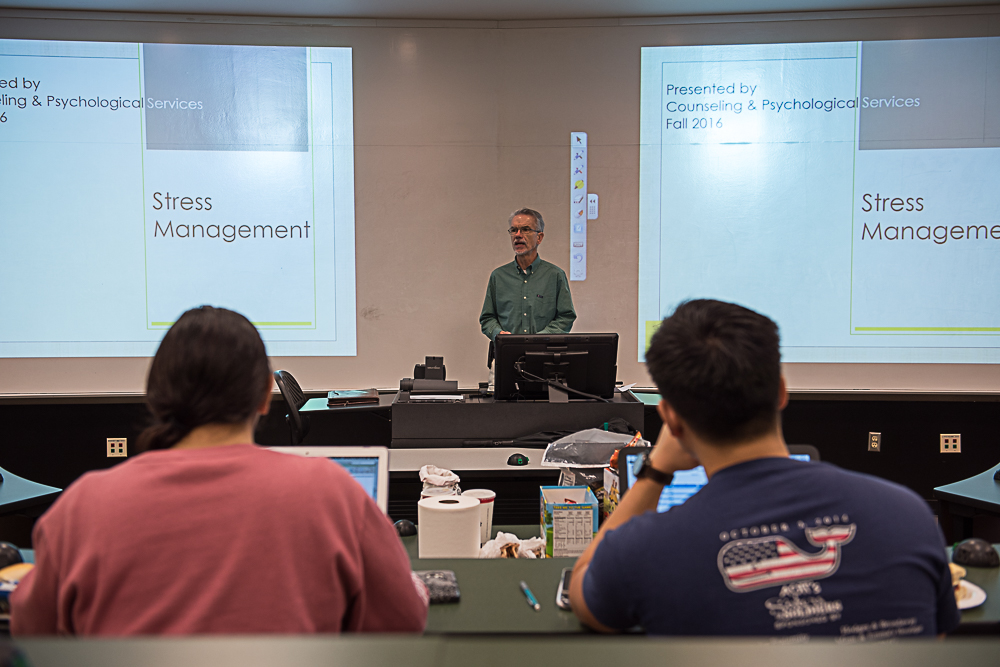The Counseling and Psychological Services Center hosted a stress and anxiety management workshop on Feb. 23 for students majoring in science, technology, engineering or math, or STEM fields.
The presenter, Dr. Terry Faust, is a licensed professional counselor specializing in cognitive behavioral therapy. He discussed ways to recognize stress and anxiety and suggested strategies for coping with them.
“Stress management is the No. 1 concern we have in the counseling center,” Faust said.
Faust dedicated much of the workshop to explaining the physical, emotional, social and spiritual indicators of stress — including irritability, withdrawal from support systems, lashing out, fatigue, headaches and inability to concentrate. He also discussed unhealthy coping mechanisms, such as alcohol consumption, excessive sleeping and compulsive shopping.
Faust walked the attendees through proven ways to battle stress, like exercising, eating healthy foods, having strong social support and learning time-management skills.
As a cognitive behavioral therapist, Faust explained the importance of identifying and confronting what he called “core negative beliefs” — negative assumptions about one’s self that keeps them from living a healthy life. These thoughts can be anything from, “I’m going to fail this class,” to, “Nobody cares about me.”
Faust described an exercise which he said he liked to have many of his clients practice in order to help them combat their negative beliefs.
“Write down the core negative belief on the top of a piece of paper, and make two columns — evidence for and evidence against the core negative belief,” he said. “You’re going to find more reasons to not believe the thought than to believe it.”
He emphasized how many of the thoughts and fears which lead to stress and anxiety are based on false beliefs.
“A lot of decisions we make are not based on reality — they’re based on perception,” he said.
The workshop was sponsored by the Student Affiliates of American Chemical Society in conjunction with Phi Lambda Upsilon, KSU’s chemistry and biochemistry honor society. The presentation targeted STEM students who may be overwhelmed by the demand of science courses.
According to a 2014 report by the U.S. Department of Education, 50 percent of students planning to major in a STEM field will either change their area of study or drop out of school altogether.
Faust ended the workshop by leading participants in a stress-relieving breathing technique — with eyes closed, the students inhaled for three seconds, held their breath for 12 seconds and exhaled for six seconds. They repeated the exercise five times.
The professor encouraged students who feel the weight of academic stress to register for U-Turn, the counseling center’s four-week workshop for those who are not satisfied with their academic performance. The course, which begins March 9, covers procrastination, test anxiety, time management and study skills.


